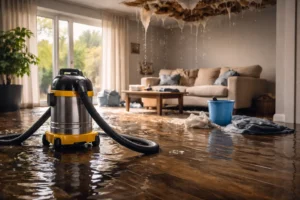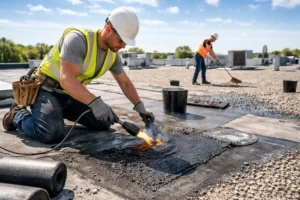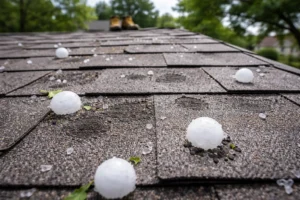Dealing with insurance claims after a natural disaster like Hurricane Beryl can be a complex and emotionally charged process, particularly for first-time homeowners. These individuals often find themselves navigating unfamiliar territory, unsure of their rights and responsibilities. In these scenarios, public adjusters (PAs) can be invaluable allies, helping policyholders to understand the nuances of their insurance policies and advocating on their behalf to secure the best possible outcome. This article explores the role of public adjusters, the challenges involved in the claims process, and actionable advice for homeowners seeking to navigate this often-difficult journey.
Understanding the Role of Public Adjusters
At its core, a public adjuster’s job is to represent the homeowner in dealings with the insurance company. Unlike adjusters who work for the insurer, public adjusters are hired by the policyholder to advocate for their interests. They specialize in evaluating damages, preparing and submitting claims, and negotiating settlements on behalf of their clients. Public adjusters typically work on a contingency basis, meaning they take a percentage—often around 10%—of the insurance payout as their fee. This arrangement aligns their incentives with the homeowner’s, as their earnings depend on the success of the claim.
In one homeowner’s experience following Hurricane Beryl, they described how their public adjuster initially took on the claims process but later suggested involving a lawyer after the claim was denied. While the adjuster remained optimistic about a favorable resolution, the homeowner was understandably concerned about the financial implications of adding legal fees to the existing 10% commission. This scenario raises important questions about when it is appropriate to escalate a claim to legal action and the potential costs involved.
When Claims Are Denied: Next Steps
Receiving a denial for an insurance claim can be disheartening, but it is not the end of the road. The first and most crucial step is to understand the reasons behind the denial. Insurance companies may reject claims for various reasons, ranging from policy exclusions to disputes over the cause or extent of the damage. It is essential for homeowners to carefully review the insurer’s explanation and gather additional evidence to challenge the decision if necessary.
For instance, one commenter emphasized the importance of determining whether the damage was caused by floodwaters, which are typically not covered under standard homeowner policies, or by wind and rain, which usually are. This distinction can make the difference between a valid denial and a claim that warrants further pursuit. Understanding these nuances is essential for homeowners considering their next steps, whether that involves further negotiation, mediation, or legal action.
Clear Communication Is Key
A recurring theme among successful claims is the importance of maintaining clear and consistent communication between all parties involved. A public adjuster should act as a liaison, ensuring that homeowners are kept informed at every stage of the process. This includes providing copies of all correspondence with the insurance company, explaining the reasons behind any delays, and discussing potential next steps.
One professional highlighted the importance of transparency, noting that public adjusters should ensure the homeowner is copied on all communications. Failing to do so can lead to confusion and frustration, especially if the adjuster is not proactively explaining the status of the claim. This lack of communication can make homeowners feel excluded from a process that directly impacts their financial recovery and peace of mind.
Maximizing the Impact of a Public Adjuster
The effectiveness of a public adjuster often depends on their experience, communication skills, and commitment to the homeowner’s case. A skilled adjuster will not only prepare and submit the claim but also actively advocate for the homeowner, exploring all available avenues for resolution. This might include requesting a second opinion, pursuing mediation, or even recommending legal action if the claim is unjustly denied.
One commenter noted that while hiring a public adjuster is generally a good decision, their effectiveness can vary. Some adjusters may prioritize signing as many claims as possible, focusing on volume rather than quality. Homeowners should assess whether their adjuster is genuinely invested in their case by asking questions, staying involved, and evaluating the adjuster’s performance throughout the process.
Avoiding Pitfalls: Contracts and Costs
Before signing an agreement with a public adjuster or attorney, homeowners should carefully review the terms, particularly regarding fees and responsibilities. In some states, like Florida, specific laws dictate the financial obligations of homeowners, including potential liability for legal fees even if the case does not result in a payout. These details can significantly impact the homeowner’s financial recovery and must be understood in advance.
A commenter emphasized the importance of reading contracts thoroughly, especially in states with complex legal frameworks. By understanding these agreements, homeowners can avoid unexpected costs and ensure they are fully aware of their rights and obligations throughout the claims process.
Leveraging Alternative Dispute Resolution Methods
While litigation is sometimes necessary, it is not always the best or most efficient solution. Alternatives like mediation or appraisals can often resolve disputes more quickly and with less financial strain. These methods involve neutral third parties who help both sides reach a mutually agreeable resolution, saving time and resources.
One commenter suggested that a demand letter or an appraisal might provide an effective alternative to a lawsuit. By exploring these options, homeowners can address their concerns without the added stress and expense of legal action, which should generally be considered a last resort.
Building Trust in the Claims Team
The relationship between a homeowner and their claims team—including their public adjuster, attorney, and other professionals—is built on trust. Homeowners should feel confident that their team is acting in their best interest and working diligently to secure a fair outcome. Achieving this trust requires clear communication, transparency in fees, and a shared understanding of goals.
One professional adjuster emphasized the importance of trust by likening the role of a public adjuster to that of an accountant or mechanic: a specialist who brings expertise and value to the table. This perspective highlights the importance of selecting professionals who prioritize their clients’ needs and communicate openly throughout the process.
Conclusion: Empowering Homeowners Through Knowledge
Public adjusters play an indispensable role in navigating the complexities of insurance claims process, particularly in the aftermath of disasters like Hurricane Beryl. By providing expert guidance, advocating for fair settlements, and exploring all available options, they help homeowners achieve the compensation they deserve.
For homeowners, success in the claims process often comes down to preparation, persistence, and active involvement. By understanding their policies, staying informed, and partnering with trusted professionals, homeowners can overcome the challenges of insurance claims and rebuild with confidence.







